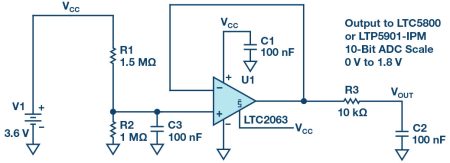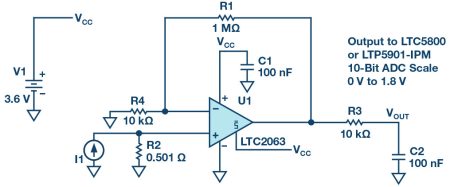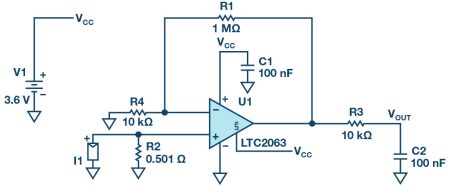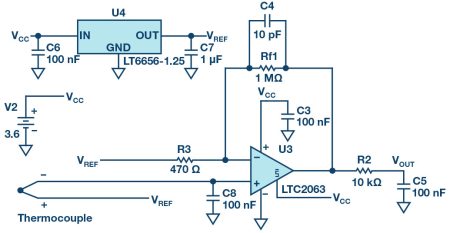Cadence Design Systems has collaborated with Arm for its Neoverse V2 by fine-tuning its AI-driven RTL-to-GDS digital flow for Neoverse V2 and delivered corresponding 5nm and 3nm Rapid Adoption Kits (RAKs) which are designed to support customers achieve power, performance and area (PPA) targets faster. The Cadence AI-driven verification full flow supports Neoverse V2, providing designers with optimal verification throughput and preparedness for Arm SystemReady compliance, added Cadence.
The AI-driven Cadence RTL-to-GDS digital full flow RAKs for 3nm and 5nm nodes include Genus Synthesis, Modus DFT Software, Innovus Implementation System, Quantus Extraction, Tempus Timing and ECO Option, Voltus IC Power Integrity, Conformal Equivalence Checking, Conformal Low Power and the AI-based Cerebrus Intelligent Chip Explorer.
Benefits of the digital RAKs for Arm Neoverse V2 designers include, for example, the Cerebrus AI capabilities which automate and scale digital chip design, delivering better PPA and improving designer productivity. The inclusion of Cadence iSpatial technology provides an integrated and predictable implementation flow for the faster design closure, added the company. The RAKs also include a smart hierarchy flow that delivers optimal turnaround times on large, high-performance CPUs.
In another example, the Tempus ECO technology offers sign off-accurate final design closure based on path-based analysis. The incorporation of the GigaOpt activity-aware power optimisation engine is claimed to significantly reduce dynamic power consumption.
The AI-driven verification full flow is optimised to support Arm Neoverse V2 and includes the Xcelium Logic Simulation platform, Palladium Enterprise Emulation platforms, Protium Enterprise Prototyping systems, Helium Virtual and Hybrid Studio, Jasper Formal Verification platform, Verisium Manager Planning and Coverage Closure tools, Perspec System Verifier, and VIP and System VIP tools and content for Arm-based designs.
The verification full flow provides Neoverse V2 designers with pre-silicon server base system architecture (SBSA) compliance verification and optimised PCI Express (PCIe) integration while the Helium Virtual and Hybrid Studio includes editable virtual and hybrid platform reference designs for Neoverse V2. These designs incorporate Arm Fast Models to jumpstart early software development and verification. The Helium gearshift technology enables customers to position workloads in a high-performance hybrid environment before shifting to a fully accurate RTL environment, offering detailed verification using either the Palladium or Protium platforms.
“The growing demand for complex workloads such as big data analytics, HPC and ML inference requires specialised compute solutions that achieve greater performance and efficiency,” said Eddie Ramirez, vice president of go-to-market, infrastructure line of business at Arm. “Through this latest collaboration, customers can leverage Cadence’s comprehensive digital and verification flows to validate their solutions and bring the power of their Neoverse V2-based products to market faster. Furthermore, silicon partners will get the benefits of these advanced design flows when running their EDA workloads on Arm-enabled servers and cloud instances.”
Sector News
Accurate, Low Power Remote Sensing Ideas
The remote sensing examples shown here feature high reliability, easy connectivity, and very low power. These circuits target industrial settings that require robust communications and minimal battery maintenance. The solutions combine recent advances in low power, high precision amplification with comparably low power, high reliability wireless mesh network capability. Enabling the solutions are the LTC2063 zero-drift, low input bias amplifier, which runs at 2µA max, and the LTP5901-IPM, which consumes less than 1.5µA in sleep mode. The power dissipation for these devices is low enough that they can run from a benchtop-made battery comprised of copper and zinc electrodes, each four inches square in area, and an electrolyte consisting of the pithy innards of a lemon.
Wireless Mesh
Measurements performed and retrieved on a wireless network in industrial settings rarely require high speeds, but they usually require high reliability and security, in addition to low power operation to maximise battery operating time. The LTP5901-IPM forms a node, or a SmartMesh® IP Mote, in an 802.15.4e wireless network. The LTP5901-IPM integrates a 10-bit, 0V to 1.8V ADC alongside an internal ARM® Cortex®-M3 32-bit microprocessor, which enables sensing with easy programmability. This mote is designed for security, reliability, low power, flexibility, and programmability.
Four Sense Applications
Overall, the design of the following circuits did not require rocket science. Yet, they are tidy, efficient, and well-tailored to specific applications. Complexity is not required and, in fact, would be a cost and reliability hazard.
Each circuit engages a sensor at the input and processes the sensor output to produce an output voltage. With the LTP5901-IPM 10-bit ADC as an input, each circuit tries to map the input to capture much of the 0V to 1.8 Vrange.
Basic Battery Voltage Sense

Figure 1. Simple battery voltage sense.
Figure 1 shows a typical noninverting unity-gain negative feedback op amp configuration that senses a divided-down voltage. The ADC range on the LTP5901 input is 0V to 1.8V. R1 and R2 divide down the battery voltage with minimal quiescent current to enable long lasting battery life. The input bias current of the LTC2063 is low enough that even these large resistance values do not affect the final 10-bit ADC accuracy. The LTC2063 consumes minimal supply current and provides the advantage of zero-drift vs. time and temperature.
Current Sense

Figure 2. Current sense circuit.
The beauty of battery-powered and isolated electronics is the ability to place ground anywhere. One can sense a current in the most convenient circuit topology without loss of generality, while placing the terminals anywhere relative to local ground. For unipolar current such as a 4mA to 20mA industrial loop, one can safely sense relative to local ground using a traditional low-side topology. Figure 2 shows the current flowing through a very small resistor R2, which develops a sense voltage. This input voltage can be extremely small due to the amplifier’s zero-drift, very low valued offset voltage performance. The circuit shown gains up the input developed across a 501mΩ sense resistor by 101V/V. At 20mA, the VOUT is 1.012V. Other values can be chosen to maximise the use of the ADC’s 1.8V range.
Resistance R4 is relatively low and acts as a low impedance shunt of LTC2063 input capacitance. As a consequence, interaction between the large R1 feedback resistor and input capacitance does not play into stability.
The circuit as constructed is optimised for test current ranges from 0mA to 35mA, mapping to the 0V to 1.8V ADC range.
Irradiance Meter

Figure 3. Irradiance measurement using a solar cell in short circuit.
The circuit of Figure 2 can also be used to measure the short-circuit current of a solar cell. Silicon and other solar cells are highly linear in current vs. irradiance when operated in the short-circuit current mode. Short-circuit current is the current from a solar cell with 0V across. The circuit in Figure 3 does not keep the solar cell at precisely 0V at maximum current; however, even with 20mA in full sunlight, the voltage is only 10mV. A 10mV level across the solar cell is virtually a short on its I-V curve.
One might imagine a transimpedance amplifier (TIA) instead. A TIA can force 0V across the solar cell and measure current. The trouble with this kind of circuit is that the op amp supplies the solar cell’s current across the entire range of irradiance. When the priority is minimum power dissipation of the remote sense circuit, 20mA from the battery through the op amp is unacceptable.
Given the need to remain near 0V, a small sense resistor should be used. A remotely located, battery-powered sense of small voltages once again suggests the use of a very accurate, low power amplifier such as the LTC2063.
Solar installations result in exactly the sorts of physical layouts that demand wireless mesh networking with zero temperature drift measurement. Fortunately, silicon photodiodes, in the short-circuit condition, are fairly stable vs. temperature. A simple and robust design utilising the LTC2063 and LTP5901-IPM, combined with a silicon solar cell, is the ideal solution to sensing across a large installation field with changing ambient temperature conditions.
Temperature Measurement with Thermocouple

Figure 4. Thermocouple sense circuit.
Thermocouple voltages can be positive or negative. The circuit of Figure 4 combines the use of a micropower reference and a micropower amplifier to sense tiny voltages that are both positive and negative. It is fortunate that a thermocouple, if electrically isolated from its device under test (DUT), can be placed at whatever voltage domain is convenient. The example in Figure 4 biases the thermocouple at 1.25V by using the LT6656-1.25. The circuit output is a very highly gained version of the small thermocouple voltage on top of a 1.25V reference. The ADC range of 0V to 1.8V is a reasonable target for this configuration. The extremely high gain of roughly 2000V/V would not be feasible without the employment of a zero-drift, low offset amplifier.
Conclusion
Extremely low power, accurate, remote sensing is absolutely attainable. The examples shown in this article reveal the simplicity of combining a low power, high accuracy amplifier with a programmable system-on-chip wireless mesh node.
About the Author
Aaron Schultz is an applications engineering manager in the LPS business unit. His multiple system engineering roles in both design and applications have exposed him to topics ranging across battery management, photovoltaics, dimmable LED drive circuits, low voltage and high current dc-to-dc conversion, high speed fiber optic communication, advanced DDR3 memory R&D, custom tool development, validation, and basic analog circuits, while over half of his career has been spent in power conversion. He graduated from Carnegie Mellon University in 1993 and MIT in 1995. By night he plays jazz piano. He can be reached at aaron.schultz@analog.com.
Headset increases productivity with hands-free operation
The next generation of RealWear’s hands-free, wearable computers for frontline workers is the Navigator Z1 Intrinsically Safe (IS) headset, which accesses AI and 5G connectivity.
Built for productivity and safety in industries such as oil and gas, pharmaceuticals, and mining, the hands-free IS wearable solution frees a worker’s hands to make operations smarter, safer, and more efficient.
The Navigator Z1 is certified for use in areas where nearly all electronics are strictly prohibited due to the potential risk of explosion or combustion. It can be used on sites including oil and gas production areas, for rig inspections at sea or for repair in mission-critical production equipment in processing mills, chemical facilities, and mines.
It is “the smartest and lightest IS wearable with integrated battery available to frontline workers who work in some of the most challenging sites on earth,” said Dr. Chris Parkinson, co-founder and CEO of RealWear. “We’re especially keen to introduce AI Core and 5G IS connectivity to create a new frontier of smart, connected wearable solutions for frontline workers,” he added.
Technical improvements in this version of the headset includes the introduction of RealWear’s new AI Core, especially designed for on-device enhanced AI experiences. The headset is also lighter than earlier models but retains the ruggedness and durability levels, said RealWear. There is also improved screen visibility with an HD 720p display and a high resolution front-facing camera (48 Mpixel) for better remote collaboration and low-light image capture for inspections and auditing.
The headset has a wide temperature range for use in more climates and environments, enhanced noise cancellation for improved voice-responsiveness and accuracy and improved connectivity with faster Wi-Fi 6 and an optional 5G IS solution for private and secure enterprise connectivity.
There is also a thermal camera module to spot invisible issues before they become critical and a removable integrated snag-free battery for enhanced safety and for extended use. The headset operates with Enterprise Secure Android 12.
RealWear Navigator Z1 capabilities include purpose-built software for remote expert guidance and training. Remote experts can conduct in-the-moment maintenance and repair, potentially reducing costly travel and downtime via apps like Microsoft Teams and Zoom.
Using just simple voice commands, workers can connect to FSM (field service management) enterprise AI systems to handle work orders safely and quickly, and conduct asset maintenance at reduced operational costs.
Inspectors can inspect a job site, take high quality photos and dictate notes using the field data collection component of an inspection data management system (IDMS) such as hands-free solutions from RealWear and HUVR. Captured data is instantly uploaded and geocoded for integrity verification, auditing and compliance purposes.
Device administrators can access RealWear’s enterprise-grade RealWear Cloud web portal to add approved apps to the headset, adjust a variety of settings, and even remotely connect to the headset to offer remote device troubleshooting.
To take full advantage of the powerful Qualcomm 6490 chipset, RealWear has begun to offer early access of the new headset to its global developer community.
“We’re thrilled that RealWear is utilising the Qualcomm 6490 platform in RealWear Navigator Z1 that will help frontline workers in extremely hazardous zones where rugged equipment and safety is essential,” said Jeff Henckels, director of XR Product Management, Qualcomm Technologies. “The Qualcomm 6490 is a perfect fit for RealWear’s next generation headsets as it enables powerful connections and reduced latency, an advanced ISP and advanced Edge-AI computing to deliver astonishing performance at lower power.”
The headset will launch with certifications for ATEX Zone 1, CSA C1/D1 and IECEx.
TMCS1123 extends EZShunt portfolio to simplify current sensing
The latest addition to Texas Instruments’ current sensors portfolio is the TMCS1123 Hall-effect current sensor. It helps engineers simplify designs while improving accuracy, said the company.
Designed for a broad range of common-mode voltages and temperatures, the TMCS1123 series includes what is claimed to be a lowest-drift isolated Hall-effect current sensor for high voltage systems. There is also a portfolio of current shunt monitors that eliminate the need for an external shunt resistor for non-isolated voltage rails.
The TMCS1123 is also claimed to have the industry’s highest reinforced isolation and highest accuracy over lifetime and temperature. Its high accuracy and low propagation delay enables designers to use Hall-effect sensors in previously unrealisable high voltage systems, said the company, to reduce system cost and size.
The need for highly accurate current measurements in high-voltage systems such as electric vehicle chargers and solar inverters is growing, but Hall-effect current sensors have typically been overlooked given their high drift over lifetime. The TMCS1123 Hall-effect current sensor features the highest reinforced isolation working voltage of 1,100V DC. It also features a maximum sensitivity error of ±0.75 per cent with 50 ppm per degree C drift over temperature and ±0.5 per cent drift over lifetime. The TMCS1123 features low propagation delay of 600 nanoseconds and bandwidth of 250kHz, which enable faster control loops while keeping noise low to help increase system efficiency. The high precision and stability over lifetime remove the need to recalibrate equipment, reducing costly and time-consuming maintenance, added TI.
For non-isolated systems up to 85V and 75A RMS, TI also offers what is believed to be the industry’s smallest fully integrated current shunt monitor and the industry’s highest accuracy 75A integrated shunt solution.
TI’s EZShunt portfolio of current-sensing solutions simplifies designs by removing the need for an external shunt resistor. It provides a fully integrated current-sensing solution that fits within the footprint of a 1206 shunt resistor.
Pre-production quantities of the TMCS1123 Hall-effect current sensor are available now, in a 10.3 x 10.3mm, 10-pin small outline integrated circuit (SOIC) package. Designers can purchase the TMCS1123EVM evaluation module.
Higher bandwidth and automotive-qualified versions of the TMCS1123 are expected to be available in fourth quarter of 2023 and second quarter of 2024, respectively.
About Smart Cities
This news story is brought to you by smartcitieselectronics.com, the specialist site dedicated to delivering information about what’s new in the Smart City Electronics industry, with daily news updates, new products and industry news. To stay up-to-date, register to receive our weekly newsletters and keep yourself informed on the latest technology news and new products from around the globe. Simply click this link to register here: Smart Cities Registration







